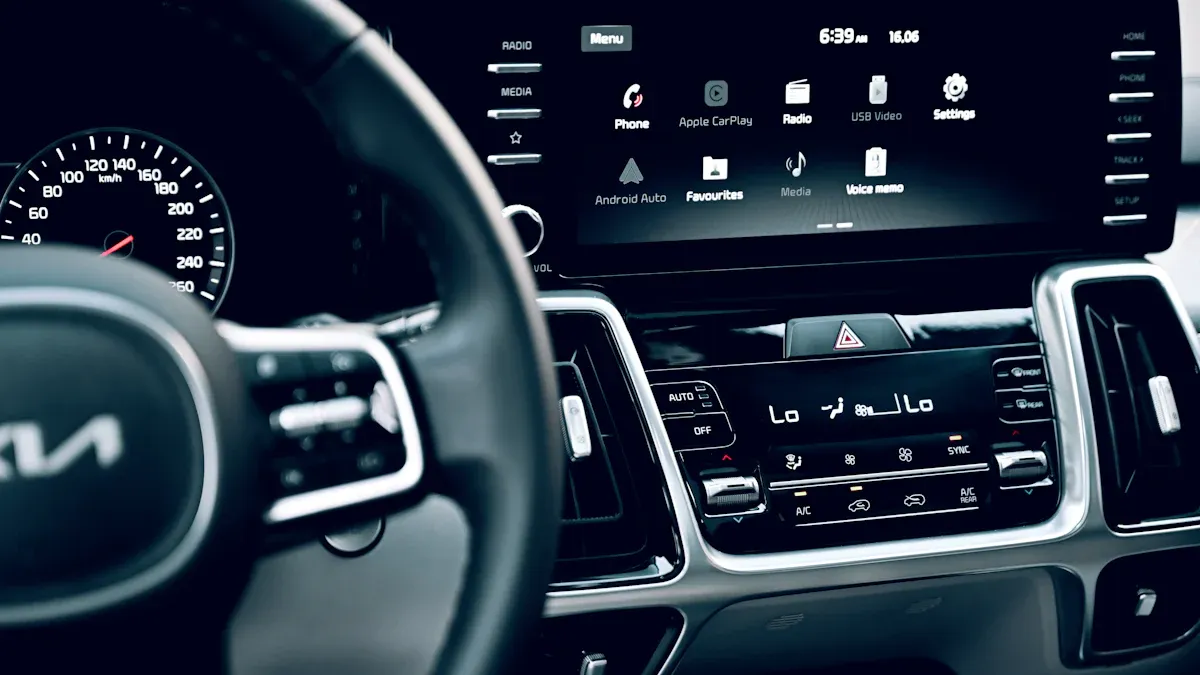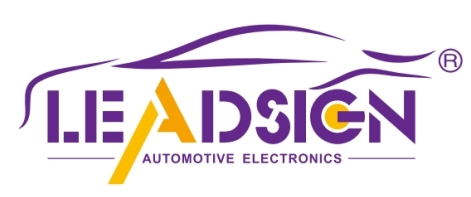3 Simple Steps to Install CarPlay Converter

Wireless CarPlay adapters are important for today’s drivers. Did you know many car buyers now want Apple CarPlay in their cars? If your car doesn’t have it, don’t stress. You can add it using a CarPlay converter. This guide will show you easy steps to begin.
Key Takeaways
Make sure your car and iPhone work with wireless CarPlay first. This helps save time and prevents problems later.
Put the wireless CarPlay adapter into the right USB port in your car. Then, connect it to your car's system. This step is simple and fast.
Change settings for better use, like setting Wi-Fi to channel #36. Also, update the adapter's firmware often for smooth performance.
Step 1: Make Sure Wireless CarPlay Will Work
Before setting up a wireless CarPlay adapter, check if it will work. This step helps save time and avoids problems later.
Check If Your Car Supports the CarPlay Converter
Not every car works with wireless CarPlay. To find out, search for your car model in the supported brands list. Common brands include:
BMW
Audi
Toyota
Honda
Mercedes
Ford
If your car is listed, you’re all set! If not, you may need extra hardware to use Apple CarPlay wirelessly in your car.
Check If Your iPhone Works with Wireless CarPlay
Your iPhone must meet certain rules too. Wireless CarPlay works with iPhones using iOS 9 or newer. Models like iPhone 6 and later are compatible. To see your iPhone’s iOS version, go to Settings > General > About. If your iPhone is updated, you can move to the next step.
Look at the Wireless CarPlay Adapter's Features
Lastly, check the features of your wireless CarPlay adapter. For instance, some adapters, like the Play to Video All-in-One Wireless Adapter, have a modern design and support USB media playback. They also allow updates through USB-A ports and offer Bluetooth audio streaming. These features make it easy to use. Plus, the setup is fast, taking less than 23 seconds.
By doing these checks, you’ll avoid problems and have an easy installation process.
Step 2: Hook Up the Wireless CarPlay Adapter
After checking compatibility, it’s time to set up the adapter. Don’t worry—it’s simple! Follow these steps to begin.
Plug the Adapter into Your Car's USB Slot
First, find your car’s USB slot. It’s often near the dashboard or center console. Once you spot it, insert the wireless CarPlay adapter. The adapter will turn on right away. If your car has more than one USB slot, pick the one marked for data or media. This ensures the adapter works correctly.
Link the Adapter to Your Car's System
Next, connect the adapter to your car’s system. Turn on your car’s screen and choose the option to add a device. The system will search for devices nearby. When it finds the adapter, select it. The connection process is quick and easy.
Here’s why this step works well:
Proof Type | Details |
|---|---|
User Feedback | People say Ottocast adapters connect smoothly without delays. |
Design Features | Built to handle tough conditions for steady performance. |
Software Updates | Regular updates fix issues and improve how it works. |
Pair Your iPhone to Wireless CarPlay
Finally, link your iPhone to wireless CarPlay. Go to your iPhone’s settings and turn on Bluetooth and Wi-Fi. Your car’s system will find your iPhone. Select it, and you’re ready to go! Wondering which connection is better? Here’s a quick look:
Connection Type | Pros | Cons |
|---|---|---|
Wireless CarPlay | May have signal problems sometimes | |
Wired CarPlay | Strong connection, faster response | Needs a cable to work |
Once paired, you can make calls, use maps, and play music hands-free. You’ve now connected your iPhone to wireless CarPlay. Next, let’s set it up for the best use.
Step 3: Set Up and Test the CarPlay Converter
After connecting the wireless CarPlay adapter, adjust settings and test it. This step helps you enjoy the best driving experience.
Change Settings for Better Wireless CarPlay Use
To improve wireless CarPlay, change a few settings. First, switch the adapter’s Wi-Fi channel to #36. This reduces signal issues in busy areas. It makes the connection stronger and more stable. You can also update the Wi-Fi password for extra security. This keeps your connection safe without losing performance.
If you use advanced models like CarlinKit 4.0 or 5.0, they work better with wireless signals. These models make CarPlay smoother and more reliable.
Pro Tip: Update your adapter’s firmware often. Updates fix bugs and improve performance.
Test Navigation and Media Apps
Once settings are ready, test the connection. Open a navigation app like Google Maps or Apple Maps. Check how fast it responds. Apple Maps gives clear directions, but Google Maps may not zoom easily.
For media apps, try YouTube or your music player. Most adapters start in under 51 seconds. High-quality adapters have very small audio delays, around 54 milliseconds. This ensures smooth music and video playback.
Metric | Performance Details |
|---|---|
Boot-up Times | Adapters started in 28 to 51 seconds. |
App Launch Times | YouTube loaded fast with 54ms delay; Bruxe R6 had 64ms. |
Google Maps Support | Worked well but lacked zoom; Apple Maps gave clear directions. |
Test It While Driving
Finally, take a drive to check how well wireless CarPlay works. Use voice commands to call, navigate, or play music. See if the connection stays strong while driving. If there are problems, adjust settings or update the firmware.
Driving also shows if there are sound or screen issues. If audio cuts out or the screen lags, restart the adapter or change the Wi-Fi channel. Once everything works well, you’re ready for hands-free, wireless driving fun!
Troubleshooting Tips for Wireless CarPlay Installation
Even if setup is easy, problems can happen. Don’t panic—most issues are simple to fix. Here’s how to solve common wireless CarPlay problems.
Fixing Connection Problems with the Wireless CarPlay Adapter
If your wireless CarPlay keeps disconnecting, check the adapter’s position. Ensure it’s firmly plugged into the USB port. A loose connection can cause interruptions. Restart your car’s system and iPhone to refresh the connection. This often clears small glitches.
Try changing the Wi-Fi channel on your adapter. Channels like #36 or #40 work better in busy areas. If the issue continues, update your adapter’s firmware. Updates improve compatibility and fix bugs. These steps usually solve connection problems fast.
Solving Audio or Screen Issues
Audio delays or screen glitches can be annoying. To fix them, adjust your car’s audio and display settings. Restart the adapter and iPhone if the problem remains.
Some cars have ongoing issues with wireless CarPlay. For example:
A Hyundai owner got $1,500 after legal action for disconnection issues.
Another user found dealership updates didn’t fix their problems.
One customer returned their car after repeated failures.
These examples show manufacturers know about these problems. If your adapter still doesn’t work, contact the manufacturer for help.
Updating the CarPlay Converter’s Firmware
Firmware updates keep your adapter working well. Download the latest firmware from the manufacturer’s website. Save it to a USB drive and plug it into the adapter. Follow the instructions to update.
Updates improve performance and add new features. They also fix bugs that cause problems. Check for updates every few months. This keeps your wireless CarPlay reliable and easy to use.
Setting up a wireless CarPlay adapter is super simple. After checking if it works with your car, plugging it in, and setting it up, you’re all set for a smoother ride.
People enjoy the fast and smooth connections.
It pairs automatically, saving time and effort.
No wires mean a cleaner and more organized car.
Wave goodbye to messy cables and say hello to easy, hands-free driving! 🚗✨
FAQ
What can I do if my wireless CarPlay adapter won’t connect?
Make sure the adapter is firmly in the USB port.
Restart both your car’s system and your iPhone.
Update the adapter’s firmware to fix compatibility issues.
Pro Tip: Switch to Wi-Fi channel #36 for a better connection in crowded places.
Can older iPhones work with wireless CarPlay?
Yes, wireless CarPlay works with iPhones using iOS 9 or newer. If you own an iPhone 6 or later, it will work!
How can I update my CarPlay adapter’s firmware?
Get the latest firmware from the manufacturer’s website. Put it on a USB drive, connect it to the adapter, and follow the steps to update.
Note: Updating often helps fix bugs and boosts performance.
See Also
Step-by-Step Guide to Setting Up Wireless CarPlay
Key Considerations When Choosing a Wireless CarPlay Adapter
Latest Trends in BMW CarPlay Setup and Adapters

